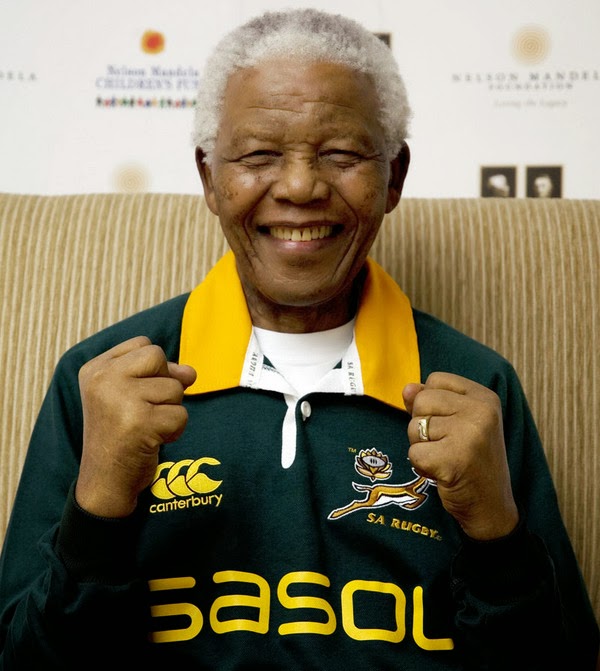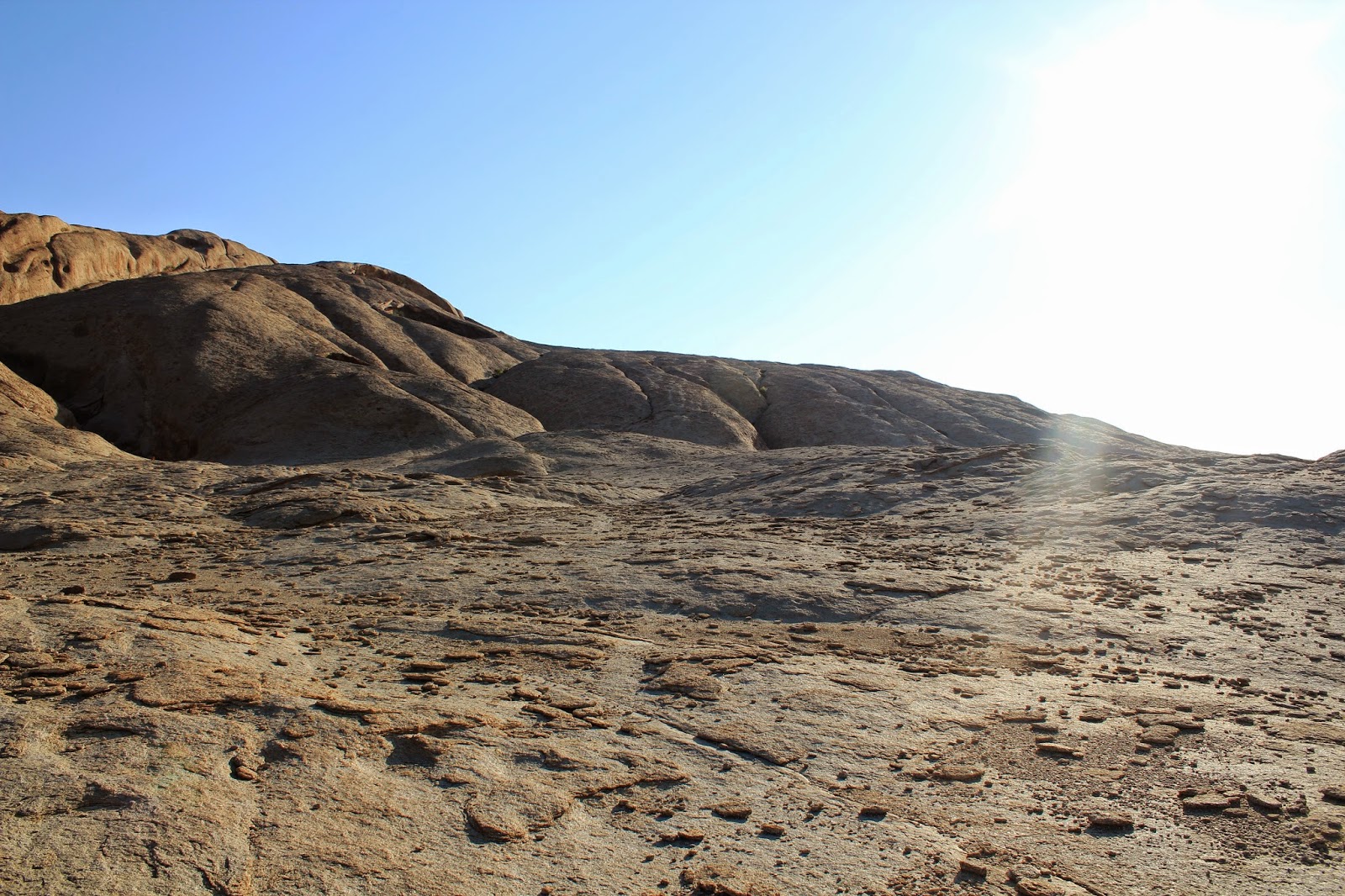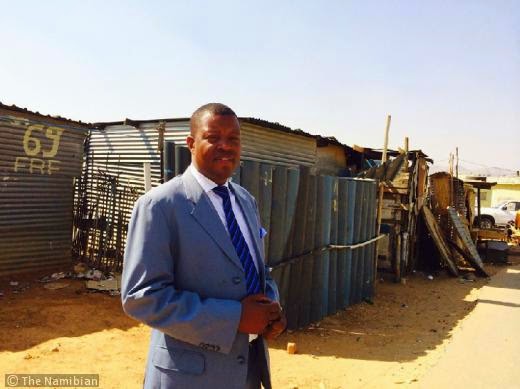The legacy of Nelson Mandela
 |
| Sporting a Bok Jersey |
 | ||
| Micheal Kapten's painting of Madiba |
Now that the dust has settled, let me ask. Where were you on Thursday the 5th of December when Nelson Mandela died? How did you feel? I felt rather crappy because it marked 12 months since the day I lost my younger brother, but that’s a story for another time. I don’t think anyone was really shocked when Nelson Mandela went to rest, we saw it coming. But still it did not cushion the blow, for once in my life a great man of Africa passed on and I really felt it. My Cousin Alex and I took turns in taking in just what it meant, we spent two days watching Mandela documentaries. Not because we did not know about who he was and what he stood for. But because it was our way of letting go, our way of coming to terms. “A great tree has fallen” as the African saying goes. In the aftermath of the great speech that Barack Obama gave and the booing of Jacob Zuma; questions arose. Although if truth is to be told, those questions were already there.
They are those who feel and believe that Mandela was sell out. That in his negotiations for a free and fair South Africa he agreed to a deal that benefited him and the white minority more than it did his own people. Everyone is entitled to their own opinion, so let me have mine. It’s saddening that the same people that Mandela gave up his youth and freedom to liberate, are the same people who have turned around and called him a traitor. If there are South Africans who feel that way then they are an ungrateful bunch, you are not special. Four years earlier, Namibia gained independence and agreed to a similar deal. National reconciliation, which was one of achievements that won Mandela a shared Nobel Peace prize with F.W. De Klerk was not invented in South Africa. It was a policy that Sam Nujoma as the head of the SWAPO led government implemented when he ascended to power in Namibia in 1990. That blueprint was designed long ago by Jomo Kenyatta in Kenya, as Kenya’s first prime minister he consistently asked white settlers not to leave Kenya and supported reconciliation. His policy was that of continuity and gradual transition of the government to Kenyans, keeping many colonial civil servants in their old jobs as they were gradually replaced by Kenyans. What Kenyatta tried to achieve was the handing over of the skills and know how to Kenyans, so that when the whites eventually left the Kenyans would be in a position to take over and run things themselves. Was Mandela ill-advised in following in his comrade’s stead? After all, Namibia was a great example of transition from white minority rule to a majority black government. Since Namibia was basically a province of South Africa for the best part of 50 years and suffered the harsh conditions of Apartheid. To call Mandela a traitor for letting the Whites keep what they gained from Apartheid smacks of ungratefulness of the highest order. The fact is that Mandela was not the saint that the west painted him to be but he was a really tactical politician (will come back to this later on), his support of Nigerian strongman Sani Abacha shows that he was not immune to faults in judgement. But in an era that gave us evil butchers like Mobutu Seseko and Idi Amin, Africa and the world should rejoice that we had Nelson Mandela. He was a politician who studied his enemy so well they underestimated him, when they knew they were in trouble and he was the only man who could help them they came running. South Africa was on the brink of a civil war, if Mandela had decided “Screw it, kill the Boers”. Then the civil war resulting from that decision would still be raging today, they would be no rainbow nation. No Springbok victory in the 1995 Rugby World Cup, no Bafana Bafana triumph in the African Nations cup of 1996 and no Soccer World cup of 2010. South Africa would be that country on the African map that nobody goes to.
Mandela negotiated with the National Party led Apartheid government and delivered a free South Africa. But the criticism levelled by youth who feel that he let them down, was that democratic transition was achieved, but no real policy on economic transition was put in place. Zakes Mda said in one of his articles of the growing discontent among the youth, “The claim is that the settlement reached between the ANC and the white apartheid government was a fraud perpetrated on the black people, who have yet to get back the land stolen by whites during colonialism”. Mda continues, “Mandela's government, critics say, focused on the cosmetics of reconciliation, while nothing materially changed in the lives of a majority of South Africans”.
Let’s be honest, the only economic transition that was possible was to take from the minority whites what they had gained from apartheid. Which would have contradicted an Ideal that Mandela famously said that he was prepared to die for. His famous quote, “During my lifetime I have dedicated myself to this struggle of the African people. I have fought against white domination, and I have fought against black domination. I have cherished the ideal of a democratic and free society in which all persons live together in harmony and with equal opportunities. It is an ideal which I hope to live for and to achieve. But if needs be, it is an ideal for which I am prepared to die.”
Had Mandela implemented what Julius Malema so vehemently wants to put in place, then that would make two wrongs. If he managed to strip the whites of their land, companies and wealth; then he would gone against an Ideal that he stated he would have died for. But then again his change from armed force before his imprisonment in 1964 to peace and reconciliation on his release might hint of a man who could change his stance if it suited him. But I truly believe that Mandela did not change his stance and reconcile with the white Apartheid government because it suited him. But because it suited South Africa, continuing violence would have just continued a never ending war, perpetuating a cycle of “an eye for an eye” that would have left everyone blind. In my eyes, Mandela will always be a man to look up to. Any man who can walk side by side with his jailers after 27 years is an extra ordinary human being. He not only freed himself but he freed his jailers, who if you try to be logical where just like pawns in a game of chess. In what he did he showed that we can be better, better than the past and better than the systems of injustice that enslaved us for so long. Namibia was colonized for over 100 years, 70% of that time was spent under South African rule. Just to put things in perspective. So to criticize him as a sell-out means we have learnt nothing.
So why did the West Idolize Mandela? Why did they paint him as a saint and more importantly why did he entertain it? Like I said Mandela was tactically astute, the world needed an African leader with Moral fiber. A leader who was in it for the people and not himself, in his single term in office. He gave away half his salary to the needy, he campaigned massively for donor funding. He trotted the globe seeking funding for social support projects and later out of office he dined with musical superstars who contributed to the Nelson Mandela Children’s fund. Mandela used his appeal, drawing a flock of celebrities who supported the 46664 project to raise fund to combat HIV/AIDS. He used his name for a good cause, which is why the world media loved him. He kept ties with his old friends, the like of Fidel Castro of Cuba, the late Yasser Arafat of the Palestinian Authority and the late colonel Muammar Gaddafi of Libya. He did not forget those who helped South Africa in its time of need. He was the one African leader who was selfless while in office, he served the people. He did not use his office as a means to change the constitution to keep himself in power. He did not oppress his people while lining his pockets with money from the state. He did not siphon off his countries fortune to foreign bank accounts, so that he could enjoy it later in forced retirement. He didn’t overstay his welcome as others did, he did not repeat the mistake as Jomo Kenyatta and Kwame Nkrumah: holding on to power for too long. He made sure that he had a worthy understudy, Thabo Mbeki did most of the administration of the state during Mandela’s single term in charge. When the time came he stepped aside, he did not wait until he need to be pushed out. The World needed an Icon with a moral compass and he answered. After all he was the one man who would not be broken, the apartheid Government took him his freedom but turned to him in their hour of need.
But still the reality is South Africa and Namibia is still defined by economic demographics that are skewed in favour of the white minority. In short, Freedom is only on paper. Is Mandela to blame for the huge gap that now exists between the rich and poor, is he responsible that 3 times more south Africans live in poverty now than during Apartheid? Nope, that blame lies with us. It lies with those who followed in his footsteps. Mandela was a lawyer whose objective was to end an oppressive system, he achieved that. He handed over the reins to an Economist (Thabo Mbeki), who he knew could run the country better than him. South Africa’s economy grew under Mbeki, but the inequality between the poor also grew. I guess we should blame Mandela for that as Well? What we have done to offset the imbalance just caused it to become worse. Cue the worst Idea in the history of a free southern Africa, Black Economic Empowerment (BEE). BEE only resulted in increased self-enrichment and corruption. Both in Namibia and South Africa. It created a small pool of black elite, a small class who have a lot and rarely ever share. BEE led to the same well off people benefiting, time and time again. We did that, Not Nelson Mandela. The idea of allowing blacks a share of the economy was bold, but to let it be hijacked by opportunistic black capitalists as Job Amupanda calls them is our fault. So let’s look at ourselves first. What have we done wrong since Mandela retired from politics?
Everyone is entitled to their opinion, so I will have mine. Before I went to University, I ditched my boyhood habit of having posters all over my wall. I restricted myself to only two, a small one of Thierry Henry and a huge one of Nelson Mandela. My poster of Mandela was twice as huge as Henry’s. Nelson Mandela believed in a free and just society, a society that put the well-being of each and citizen first. I don’t think he would approve of this society that looks past a man eating from a rubbish bin and keeps walking: as long as it’s not one of your family members. He wouldn’t approve of this society where those who can make a difference are just pre-occupied with enriching themselves. He wouldn't approve of this society filled with so much hate, even amongst members of the same ethnic groups, he wouldn't approve of the xenophobic and judgmental society we live in. He wouldn’t approve of a society where some are more equal than others, the inequality that exists between the rich and poor, regardless of race is for us to tackle. Nelson Mandela did his part, he did more than enough. We should learn from him and take it from here, let’s stop this mentality of expecting things to be given to us on a platter. Madiba once said to Tim Modise that when you choose the right people, you groom them and ease them into your shoes. You will give them confidence, so much confidence that one day you can just lean back and let them take care of things. Thank you Madiba, we shall take it from here. Thank you for teach us forgiveness, empathy and fairness. Your Legacy will live and be carried on, we shall prevail in our struggle of economic emancipation just as you prevailed in yours: That will be our way of honoring you.
Rest in Eternal Peace Madiba.
 |
| With Fidel Castro of Cuba |
 |
| Embracing the late colonel Muammar Gaddafi |
 |
| Hand in Hand with Dr Sam Nujoma founding president of Namibia, 1990 |
 |
| Greeting the late Palestinian leader Yasser Arafat |


This is the kind of stuff that should be chain-shared. It addresses the elephant and other pachyderms in the room rather nicely. And that last paragraph... gold.
ReplyDeleteThank you for reading and hopefully sharing.
ReplyDelete